Have you ever noticed the little tag-lines some people will put at the bottom of their emails? Some people will put funny quotes, others use them to promote their business or something they have going on at the time. One of the ladies I work with has a quote that says something along the lines of: “If people aren’t told they are appreciated they will assume the opposite”. As kids it is drilled into us to say “thank you” when we are given something, yet as we get older showing gratitude to those around us often doesn’t seem to transition much further than that. In a lot of ways we often see it go backwards as we start to take things for granted, particularly from those closest to us. Yet I believe if we took a step back and thought about it, we would realise that the statement at the bottom of my workmate’s email is true, when people don’t thank us for the things we do, we start to feel unappreciated and taken for granted, which means that genuine gratitude is an important element of the relationships we have. It also means it is even more important in the relationships we have with our partner, our family and our close friends, because these are the most important relationships to keep healthy. This is why it’s one of the key elements of the Show Love model. In order to get a better understanding of gratitude, let’s take a look at some of its benefits, and then some of the important aspects of meaningful gratitude.
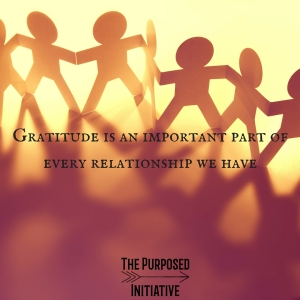 When we look into the research on the benefits of gratitude we consistently see positive results. What it shows us is that gratitude can be seen as what I call a “seed” behaviour, meaning that when we plant the seeds of gratitude we then reap positive fruit in our relationships. One study showed that when we display gratitude in our relationships, we will receive more gratitude in return (Gordon et al, 2012), so simply by showing our appreciation to those around us we will receive more appreciation ourselves. Studies have also shown that when you show gratitude in your relationship with someone they are more likely to make the effort to maintain the relationship through doing things like being open about their concerns and resolving conflict (Kubacka, 2011; Lambert and Fincham, 2012) and helping you (Lambert et al, 2010). So simply by demonstrating gratitude in our relationships we will see benefits which will help these relationships be healthier, stronger and more sustainable.
When we look into the research on the benefits of gratitude we consistently see positive results. What it shows us is that gratitude can be seen as what I call a “seed” behaviour, meaning that when we plant the seeds of gratitude we then reap positive fruit in our relationships. One study showed that when we display gratitude in our relationships, we will receive more gratitude in return (Gordon et al, 2012), so simply by showing our appreciation to those around us we will receive more appreciation ourselves. Studies have also shown that when you show gratitude in your relationship with someone they are more likely to make the effort to maintain the relationship through doing things like being open about their concerns and resolving conflict (Kubacka, 2011; Lambert and Fincham, 2012) and helping you (Lambert et al, 2010). So simply by demonstrating gratitude in our relationships we will see benefits which will help these relationships be healthier, stronger and more sustainable.
So we can see that gratitude is beneficial, now let’s have a look at some of the key elements of gratitude which make it more meaningful. If we think of gratitude like a seed, just there are a few things a seed needs to grow, there are three main things that gratitude needs in order to bring fruit:
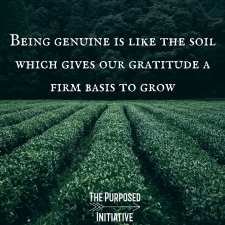
Firstly, gratitude must be genuine. Genuineness is like the soil that a seed is planted in, it gives it a firm basis and somewhere to take root. There is no point saying thank you if you don’t mean it, just like a seed won’t grow without something to take root in, this sort of gratitude doesn’t achieve anything. False gratitude can come across as condescending or patronising, however when we are genuine in our gratitude we make the person feel valued and appreciated.
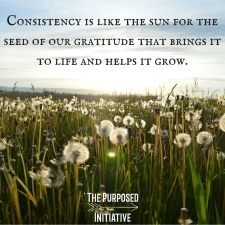
Secondly, gratitude must be consistent. Consistency is like the sun that shines down on the seed each day to warm it and help it grow. In the same way a seed needs regular light to grow, we must be showing our appreciation on a regular basis and not just as a one off. We must also ensure we don’t show gratitude only when we want something in return, but do it even when there is nothing in it for us because true gratitude is selfless.
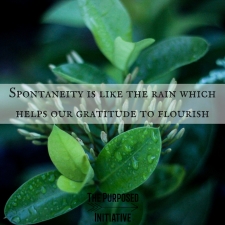
Thirdly, gratitude must have moments of spontaneity. Spontaneity is like the rain that brings the seed to life and helps it flourish. To be truly meaningful in our long-term relationships we must be willing to show our gratitude and appreciation without being prompted or doing it in response to something that someone else has done. When we are really appreciative of someone’s presence in our lives we can thank them just for being there, and encourage them for who they are, which will help them to blossom.
Genuine, meaningful gratitude is an essential element of any healthy relationship. When we show our appreciation for the other person we make them feel valued and important and let them know that who they are what they do has significance for us. Gratitude in relationships leads people to show more gratitude in return, to put more effort into maintaining the relationship through dealing with issues, and to put more effort into helping each other. Genuine and consistent gratitude which has moments of spontaneity will plant seeds of life into your relationship and help it to flourish into something which is healthy and strong and can withstand the storms.
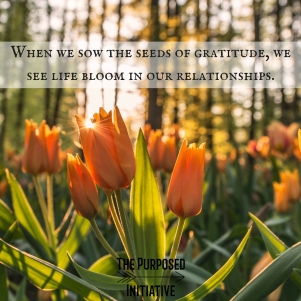

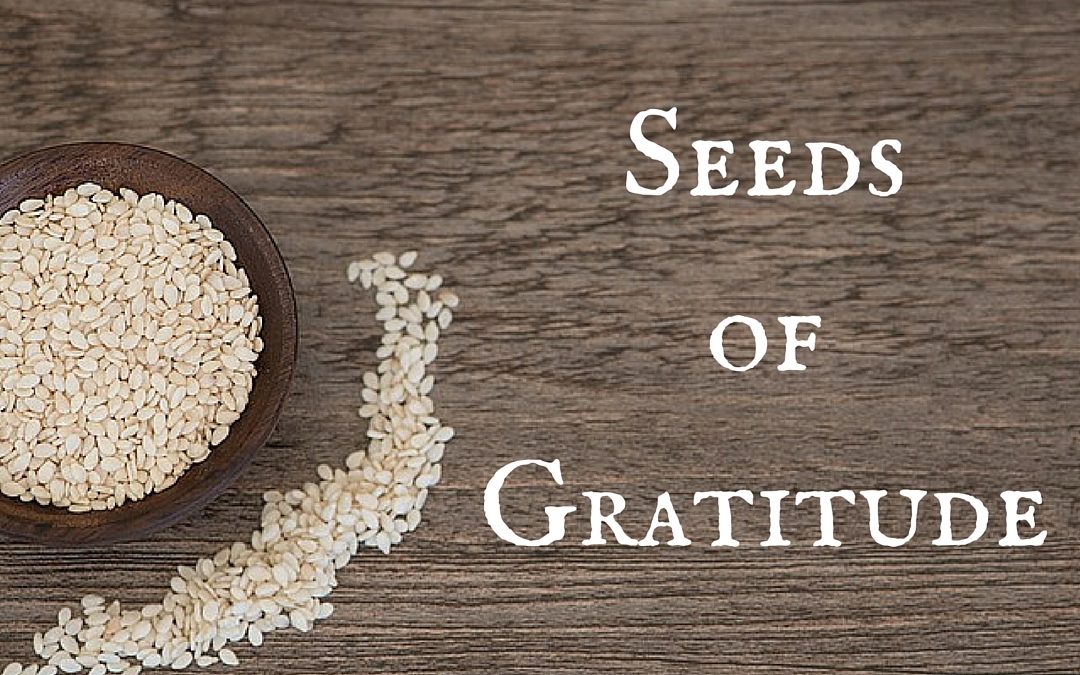
Recent Comments